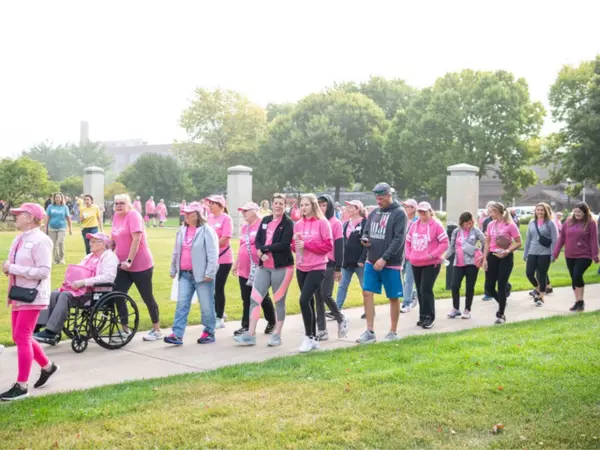
Foundation Programs & Events
Our philanthropic events throughout the year allow generous donors like you to support our mission and change lives.
The power of philanthropy
Our philanthropic events bring communities together to support patients, advance research, train tomorrow's caregivers and fund Gundersen's world-class care.

Children's Miracle Network Hospitals® Miracle Gala
When we change kids’ health, we change the future. Your donations to our 2023 Miracle Gala raised a record-setting $102,000 to make miracles happen for local children who need special medical care. Give now to create miracles or join us for the upcoming Miracle Gala on April 12 at the Cargill Room in downtown La Crosse. Ticket sales open in early 2024.
Drive for Hope
Our annual Sue Eber Memorial Drive for Hope Golf Tournament raises philanthropic support “fore” lung cancer research and patient support programs at Gundersen. The 4-person-scramble tournament includes green fees, cart, lunch, gifts and hole prizes, plus a celebration when your team reaches the 19th hole at the La Crosse Country Club. Drive for Hope will return on June 2nd, 2025. Give now to support local lung cancer research and patient support programs.


Steppin' Out in Pink
Our annual breast cancer fundraising event brings us together each September to celebrate breast cancer survivors and remember those we've lost so that future generations won't have to. Since 2006, more than $7 million raised has:
- Supported research to find answers
- Purchased diagnostic instruments to detect breast cancer sooner
- Subsidized mammograms because everyone deserves screenings
You can give now or walk with us in the fight against breast cancer for Steppin’ Out in Pink on Sept. 14, 2024, in downtown La Crosse.
CMN Hospitals Radiothon
Hear from families helped by Children’s Miracle Network Hospitals when you tune in to Radiothon on Oct. 10-11, 2024. Broadcasted live from our Clinic in La Crosse with our radio partners at Mid-West Family La Crosse, we hope their stories of courage will inspire you to help other kids facing medical battles. Give now or tune in to Z93, 95.7 The Rock and KQ98.


More from Gundersen Medical Foundation

Ways to Give
There are many ways to give to Gundersen Medical Foundation. Choose an area that’s near and dear to your heart.

Our Impact
Thanks to generous donations, we’re making a real difference in the health of our community—now and for future generations.

News
Stay current on our latest achievements, investments and happenings, made possible by your generosity.




